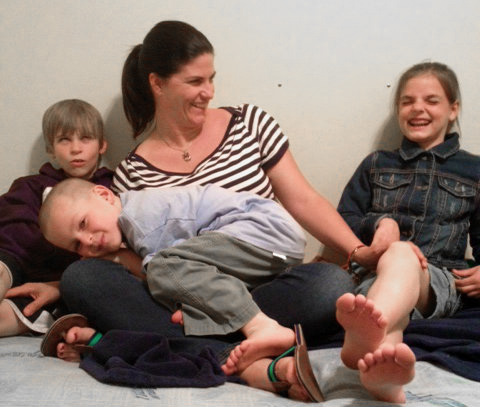What if curiosity was the cornerstone of our parenting?
Once, before I was a parent and simply a zealous new teacher, I read a book about raising boys. The author had many important things to share but the one that stuck with me was the idea that boys want to share with the adults in their lives just as much as girls do even if it really may not look like it.
The author suggested a way to draw boys out was to engage with them in another activity and after some time you may be shocked at what they spill.
In other words, boys need to connect with you before they’ll tell you much of anything.
There is trust in connection.
Darn if this wasn’t totally true in my experience in a classroom. I could get those boys to tell me anything when I sat with them and a new set of crayons, or we shot basketballs on the playground together.
Fast forward to years of parenting and helping other parents and I have seen that there are stark differences in the way kids communicate. Based on what I’ve seen, personality has a lot more to do with the differences than gender. No matter why they’re different, the fact remains:
All children want to be heard by their trusted adults, they just have different ways of going about it.
Our job as parents is to lead with curiosity so that we can learn our kids’ ways of communicating in order to truly hear them no matter how loud or quiet their behaviors are.
It is easy to make sense of this when they are infants. We learn to pay attention to their cries and other cues. We slow down and listen to see if they are hungry, or sleepy or overstimulated and we respond or adjust accordingly. We are connected with them and our only assumption is that they are trying to get us to fill a need. So, we listen to see what need that may be before we move to fill it.
Somehow, no matter how tuned in we are to our infants, as they grow older and start communicating a need for connection through behaviors, other factors move in to drown out what they’re trying to say.
It is as if, when they gain words, we lose the benevolent curiosity we had before. Our own triggers come into play, and we assume, or judge or project onto them as a reaction, rather than pause and listen, like we did when they were smaller. I’ve got so many stories about me doing all of these things when my kids were smaller. I’ll share them another day.
For now, consider this, when your kids are behaving in a way that triggers something in you, are you reacting from a place of curiosity or are you assuming, judging or projecting? Are you able to watch and listen to hear what they need or are you jumping into fix-it or stop it mode?
Next time, pause and give yourself time to ground and reset before you react. I think you’ll be amazed at what you can do.
What if you treated your older child like you did your infant-with benevolent curiosity? What if their behavior only conveys a message about what they need and not what you are doing wrong?
Imagine how things might change if you were able to give you and them that grace to see it all differently?.

